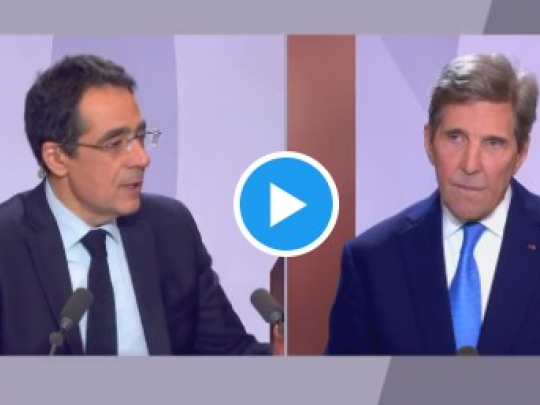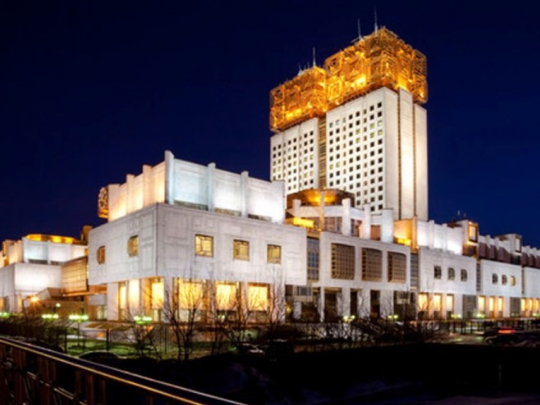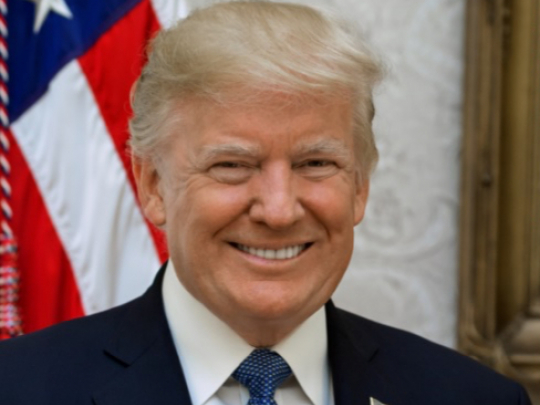Media Silence Over Deadly Sanctions: From Iraq To Syria

Awkward facts that erode the ‘benign humanitarian’ self-image of the West are routinely side-lined or buried by the corporate media. Consider, for example, the severe impact of sanctions imposed on Syria by the United States and the European Union.
An internal United Nations assessment, revealed on September 28 by Rania Khalek in The Intercept, makes clear that the sanctions are punishing ordinary Syrians and preventing vital aid, including medical supplies, from reaching those in dire need. Access has been denied for blood safety equipment, medicines, medical devices, food, fuel, water pumps and spare parts for power plants, amongst other items.
Khalek notes that the internal assessment, which was prepared for the U.N. Economic and Social Commission for Western Asia, describes:
‘the U.S. and EU measures as “some of the most complicated and far-reaching sanctions regimes ever imposed.” Detailing a complex system of “unpredictable and time-consuming” financial restrictions and licensing requirements, the report finds that U.S. sanctions are exceptionally harsh “regarding provision of humanitarian aid.”‘
US sanctions on Syrian banks have made the transfer of funds into Syria ‘nearly impossible’. This has had a two-fold effect:
Khalek also reports that a leaked email from ‘a key UN official’ blamed US and EU sanctions for contributing to food shortages and weakened health care. In particular:
‘sanctions had contributed to a doubling in fuel prices in 18 months and a 40 percent drop in wheat production since 2010, causing the price of wheat flour to soar by 300 percent and rice by 650 percent.’
The UN official cited sanctions as a ‘principal factor’ in the erosion of Syria’s health care system. Khalek adds:
‘Medicine-producing factories that haven’t been completely destroyed by the fighting have been forced to close because of sanctions-related restrictions on raw materials and foreign currency’.
The US first imposed sanctions on Syria in 1979, after designating its government ‘a State Sponsor of Terrorism’. Over time, further sanctions were added with more extreme restrictions imposed in 2011 after it was claimed the Syrian government had initiated violence against peaceful protesters (a claim that has been contested). In 2013, sanctions were eased, but only in areas that opposed President Assad. As Khalek notes:
‘Around the same time, the CIA began directly shipping weapons to armed insurgents at a colossal cost of nearly $1 billion a year, effectively adding fuel to the conflict while U.S. sanctions obstructed emergency assistance to civilians caught in the crossfire.’
When Khalek challenged the US State Department about the devastating impact of sanctions on war-torn Syria, where 13 million people are dependent on humanitarian assessment, she was fed a statement ‘which recycled talking points that justified sanctions against Iraq in [the] 1990s’:
‘U.S. sanctions against [Syrian President Bashar al-Assad], his backers, and the regime deprive these actors of resources that could be used to further the bloody campaign Assad continues to wage against his own people’.
The same specious propaganda arguments were used by the West, notably the United States and Britain, to ‘justify’ barbaric sanctions against Iraq from 1990 to 2003, following the first Gulf War. Leading politicians and officials in the West claimed that the sanctions were aimed at punishing and containing Saddam. But the victims were the Iraqi people themselves. In 1999, the United Nations’ Children’s Fund (UNICEF) reported that the mortality rate for children under five in Iraq had doubled. In all, half a million young Iraqi children died as a result. Bill Clinton’s Secretary of State, Madeleine Albright, infamously declared that ‘the price is worth it’.
Given the terrible consequences in Iraq under the crippling UN embargo, the United States government is no doubt perfectly aware of the impact of sanctions on the Syrian people. Joshua Landis, director of the Center for Middle East Studies at the University of Oklahoma, observes:
‘Sanctions have a terrible effect on the people more than the regime and Washington knows this from Iraq. But there’s pressure in Washington to do something and sanctions look like you’re doing something.’
Hans von Sponeck, who resigned from his post as the UN Humanitarian Coordinator in Baghdad in 2000, accused Washington and London of ‘knowingly maintaining conditions of misery’ in Iraq under sanctions. (Hans von Sponeck, ‘A Different Kind of War: The UN Sanctions Regime in Iraq’, Berghahn, 2006, p. 27). We are not supposed to believe that ‘our’ governments would do such a heinous thing. And, indeed, von Sponeck’s book was essentially ignored by the western media. It has never been reviewed by any major UK newspaper, and has literally been mentioned only once (by Robert Fisk in the Independent).
As well as the current punitive sanctions on Syria, Khalek also notes that:
‘in cities controlled by ISIS, the U.S. has employed some of the same tactics it condemns. For example, U.S.-backed ground forces laid siege to Manbij, a city in northern Syria not far from Aleppo that is home to tens of thousands of civilians. U.S. airstrikes pounded the city over the summer, killing up to 125 civilians in a single attack. The U.S. also used airstrikes to drive ISIS out of Kobane, Ramadi, and Fallujah, leaving behind flattened neighborhoods. In Fallujah, residents resorted to eating soup made from grass and 140 people reportedly died from lack of food and medicine during the siege.’
An honest media would report all this with headline coverage and include much critical analysis in editorials and opinion pieces. They would also ask searching questions of the British Prime Minister and other leading politicians. Needless to say, this has not happened. Indeed, our searches have revealed just one newspaper article covering the report’s assessment that US and EU sanctions are contributing to the terrible suffering of the Syrian people. Patrick Cockburn reported in the Independent:
‘the US and EU sanctions are imposing an economic siege on Syria as a whole which may be killing more Syrians than die of illness and malnutrition in the sieges which EU and US leaders have described as war crimes. Over half the country’s public hospitals have been damaged or destroyed.’
We found nothing on the BBC News website.
Even when the Guardian trumpeted an ‘exclusive’ on September 30 (two days after Rania Khalek’s piece in The Intercept) that more than 80% of UN aid convoys in Syria had been blocked or delayed, there was nothing about the crippling effect on aid by US and EU sanctions. There was a single passing mention to these sanctions, but only in the context of heaping blame on the official enemy Assad:
‘the UN has awarded contracts worth tens of millions of dollars to individuals closely associated with Assad, including businesspeople whose companies are under US and EU sanctions.’
We asked Nick Hopkins, the author of the Guardian article, to explain why his ‘exclusive’ had ignored criticism of US and EU sanctions. He did not respond. Hopkins, a former BBC journalist, had also remained silent when we challenged him in 2011 about a propaganda piece on Iran. Likewise, he ignored us in 2013 when we challenged him to justify misinforming Guardian readers that merely ‘tens of thousands’ had died in Iraq following the 2003 invasion by US-led forces.
These are just a tiny sample of the myriad examples that reveal the Guardian‘s role as a liberal gatekeeper of acceptable views in the ‘mainstream’. Bear this in mind the next time you see an online Guardian advert pleading:
‘Producing in-depth, thoughtful, well-reported journalism is difficult and expensive – but supporting us isn’t. If you value the Guardian’s international coverage, please help to fund our journalism by becoming a supporter.’
Support journalism that regularly buries Western crimes? Smears Jeremy Corbyn and the public movement behind him? And promotes a ‘liberal’ view of climate-wrecking capitalism? No thanks.
- Source : Media Lens















